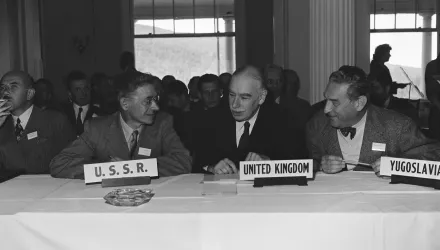International Security is America's leading peer-reviewed journal of security affairs.
Summary
The administration of President George W. Bush was deeply involved in the Middle East, but its efforts did not advance U.S. national security. In the realms of counterterrorism, democracy promotion, and nonconventional proliferation, the Bush administration failed to achieve its objectives. Although the United States did not suffer a second direct attack after September 11, 2001, the terrorism situation worsened as many other countries came under attack and a new generation of terrorists trained in Iraq. Large regional powers such as Egypt and Saudi Arabia did not become more democratic, with no new leaders subject to popular mandate. The model used in Iraq of democratization by military force is risky, costly, and not replicable. Bush's policy exacerbated the problem of nuclear proliferation, expending tremendous resources on a nonexistent program in Iraq while bolstering Iran's geopolitical position. The administration failed because it relied too heavily on military force and too little on diplomacy, disregarded empiricism, and did not address long-standing policy contradictions. The case of the Bush administration makes clear that material power does not automatically translate into international influence.
Pressman, Jeremy. “Power without Influence: The Bush Administration’s Foreign Policy Failure in the Middle East.” Spring 2009
The full text of this publication is available in the link below.





